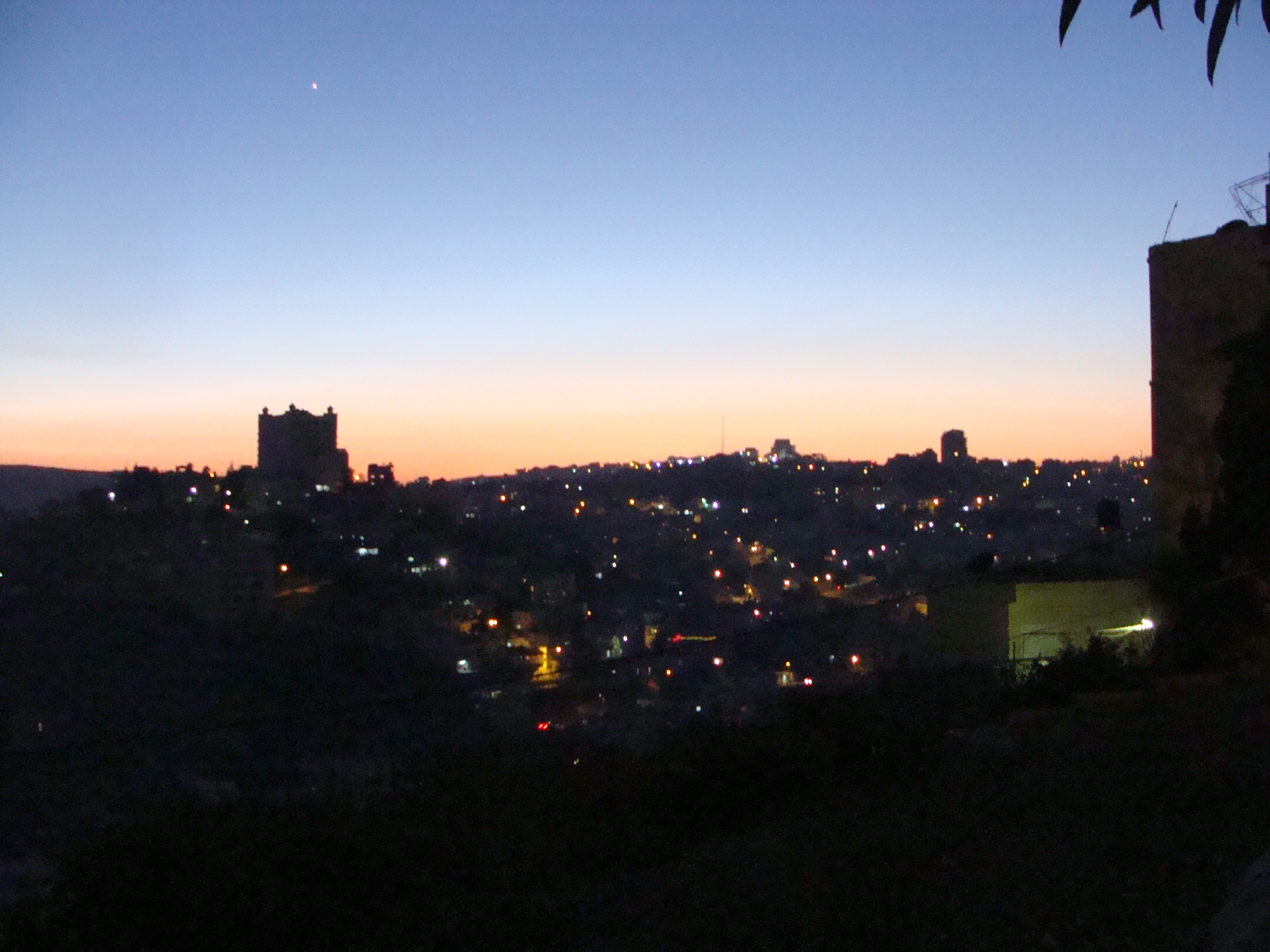+972 Magazine, July 27, 2015
The New Year comes and passes. It’s January 2014 and I’ve been living in the territories for almost a year. But rather than becoming more comfortable in my new surroundings and feeling like my usual curious and adventurous self—I am the woman, after all, who has traveled some 20 countries, mostly alone—I find myself turning inwards. I prefer to stay in Bethlehem, close to home.
This is not me.
The occupation and the checkpoints, particularly the flying checkpoints, have something to do with the change: on my way back to Bethlehem from Ramallah one afternoon, a flying checkpoint pops up near Jabaa’. As the soldiers take the IDs of everyone in the service taxi, I don’t know what to do—do I give them my American passport or my Israeli teudat zehut?
In theory, I could be headed from Qalandia—which is technically part of East Jerusalem—to Hizme, which is in Area B. I’m legal here, I tell myself. Or am I? I try to picture myself on the map that shows the zones: A, B, C.
Where is Jabaa’?
Where am I?
Who am I supposed to be right now?
It happens again as I’m driving back to Bethlehem from Jerusalem one afternoon. I’m on the little, rolling two-lane road that takes me to Beit Jala. Usually, I glide by the small army base on the edge of Beit Jala and from there, it’s a short drive to Bethlehem and I’m home. But today: when I bank the hill, I see soldiers standing in the middle of the road—a road I’ve never seen them on—checking IDs as Palestinians drive into Beit Jala. But why? If checkpoints are about security, then why would they be scrutinizing Palestinians headed into a Palestinian area? Are they looking for someone? Are they making sure that no Jewish Israelis are headed into Area A? Are they enforcing segregation?
Whatever the army’s doing there, I panic, slam on my brakes, and make a U-turn in the middle of the road, just meters from a soldier. As I speed away and he grows smaller in my rearview mirror, I realize the stupidity of what I’ve just done. I realize how suspicious it must have looked.
I also realize that I’m not sure how I’m going to get home. If there’s a flying checkpoint outside of Beit Jala, surely things will be tight at Checkpoint 300, too. There’s one more way in—a settler’s checkpoint that leads to a road that eventually splits and takes me to Beit Sahour, which neighbors Bethlehem.
But what if there are soldiers at that fork in the road, too?
I call Mohammad and ask him what I should do.
“Go back to Jerusalem, have a coffee, and try again.”
“What if the soldiers are still there?”
“They won’t be—they won’t stay forever. By the time you get back, they’ll be gone.”
Intellectually, I know that this is true. I’ve seen flying checkpoints many times before and I’ve seen them disappear as quickly as they appear. But something inside of me has changed and I find myself less able to use my head and reason through things. All I know is what I feel and I feel like the soldiers are everywhere.
Indeed, they showed up at a neighbor’s house recently—even though we live deep in Area A—asking about another neighbor’s rifle. Not only do they seem to be everywhere, they seem to know everything, even what people have in their private homes.
No, under occupation, even homes aren’t private.
I feel like the soldiers will never go away, they’ll stand there on the road between Jerusalem and Beit Jala forever and that’s the route I always take, that’s my “safe” road, and now they’re there and I’ll never get home.
